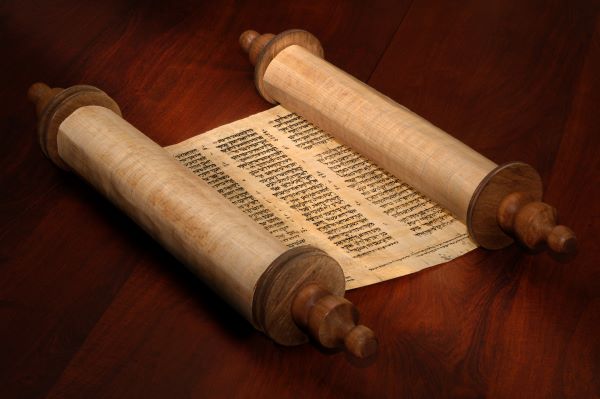Daniel
By Thomas Thorne
McDowell County
Over the last three months, we have been examining the categorization of the Old Testament as divided by Christian and Jewish scholars. We noticed that the Jewish scholars divide the Hebrew Bible (Old Testament) into three categories: the Law (Hebrew Torah), the Prophets (Neviim), and the Writings (Ketuvim). Interestingly enough the book of Daniel, which is considered by Christians to be one of the chief prophetic books of the Bible, is included in the “writings” category. In today’s article, I want to explain why this is so.
As we previously studied, a prophet is “one who speaks for another,” and therefore a prophet of God would be “one who speaks for God.” Although Christians place the book of Daniel in the Major Prophets division, the Jewish sages include it along with The Writings rather than The Prophets. This indeed is quite curious for a Believer without a Jewish background as we consider Daniel to be one of the most important prophetic books in the Bible! The book of Daniel is in two parts with the first six chapters being “historical/narrative,” telling stories from the life of Daniel and his friends while chapters 7-12 are apocalyptic visions leading up to the return of Jesus. And Daniel was definitely what we defined as a prophet earlier, being a “spokesman for God!”
Does the book of Daniel, being placed among the books of Ezra, Nehemiah, Ruth, Esther, Job, Psalms, Proverbs, Song of Solomon, Ecclesiastes, Song of Solomon, Lamentations, and 1st/2nd Chronicles show us that it was not considered to be a part of prophecy? No, the real reason is that Judaism does not consider Daniel to be a prophet, but something else. One might ask, how can that be? Parts of the book deal with the Greek empire, the fall of Babylon, the Medo-Persian empire, and the Roman empire, all the way up to the return of Jesus. There is no doubt that all of these were in the future from the life of Daniel (approx. 620 B.C. – 530 B.C.).
The reason the Jewish people do not list the book of Daniel with the “prophets” is because the Jewish definition of a Biblical prophet is one who had direct communication with God. Daniel, on the other hand, received divine inspiration via the Holy Spirit (Hebrew Ruach HaKodesh). Daniel, along with his friends, Shadrach, Meshach, and Abednego, were placed in a pagan kingdom where the LORD did not speak or appear to them in the same way He did with Isaiah, Jeremiah, and Zechariah. Nevertheless, the men of this foreign kingdom (Babylon) saw God’s power and sovereignty in Daniel’s and their own lives.
Indeed, the prophets of old had the Spirit of God within them, although the Jewish sages say that God’s spirit gave Daniel a depth of insight and revelation uncommon to prophets. In this way, Daniel is considered to be a “sage,” and in the Talmud (the authoritative body of Jewish tradition comprising the Mishnah and Gemara – Webster Dictionary, accessed 12/8/23) we read that a “sage is superior to a prophet” (Bava Batra 12a).
According to the Rabbis of the Talmud, Daniel was endowed with such an incredible gift of wisdom, that if one were to weigh his wisdom against that of all the wise men of the gentile nations, Daniel’s would outweigh them all (Talmud, Yoma 77a).
My last several articles have been describing the organization of the Old Testament/Hebrew Bible. In summary, Christian scholars categorize the O.T. into five parts:
- The Pentateuch – Genesis through Deuteronomy
- Historical books: Joshua through Esther – 12 books
- Poetic books: Job through the Song of Solomon – 5 books
- Major prophets: Isaiah through Daniel – 5 books
- Minor prophets: Hosea through Malachi – 12 books
The Jewish people divide the Hebrew Bible (Old Testament) into three sections:
- The Torah (law, instruction, direction) consists of Genesis, Exodus, Leviticus, Numbers, and Deuteronomy (5 books)
- The Neviim – (Prophets) include Joshua, Judges, 1 & 2 Samuel, 1 & 2 Kings, Isaiah, Jeremiah, Ezekiel, Hosea, Joel, Amos, Obadiah, Jonah, Micah, Nahum, Habakkuk, Zephaniah, Haggai, Zechariah, Malachi (21 books)
- The Ketuvim – (Writings) is made up of Psalms, Proverbs, Job, Song of Solomon, Ruth, Lamentations, Ecclesiastes, Esther, Daniel, Ezra, Nehemiah, 1 and 2 Chronicles (13 books)
I hope this past series of articles has helped clarify any questions as to why the differences in the divisions plus provided some additional understanding into the Old Testament.
Shalom,
Tom Thorne
____________________________________________
Tom Thorne and his wife (Amy) moved to Marion from Denver, NC almost a year and a half ago. Thomas and Amy are fellowship leaders of a small congregation of Believers called “Servants of the Most High God.” Tom can be reached at servantsotmhg@gmail.com
____________________________________________
Read more Christian news here.







